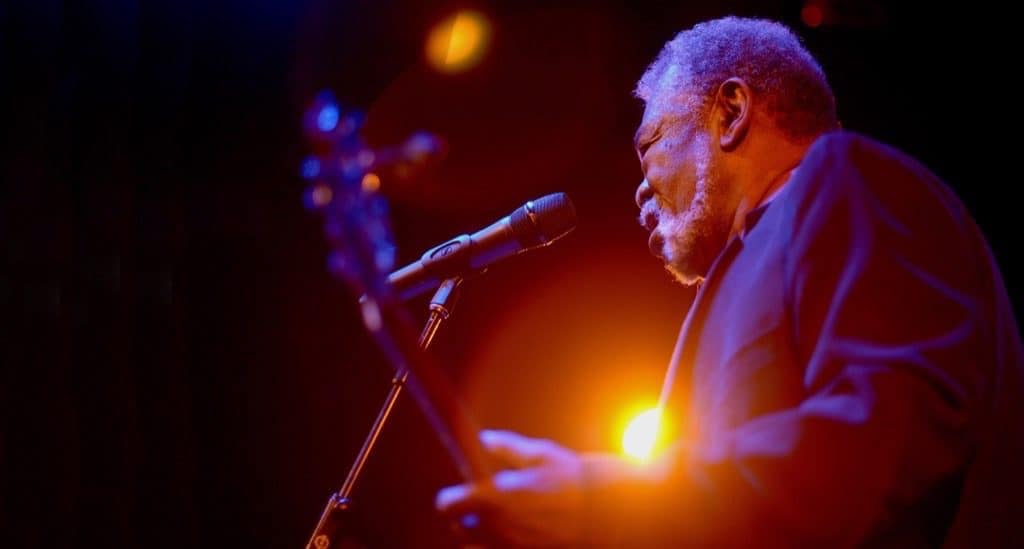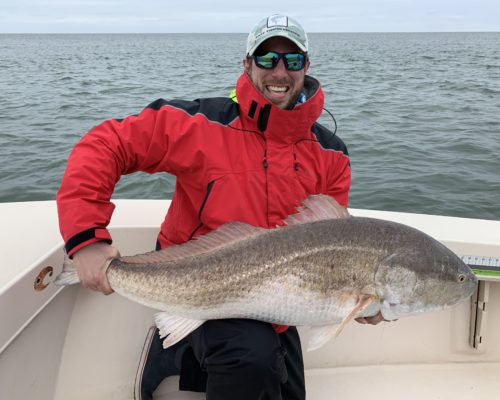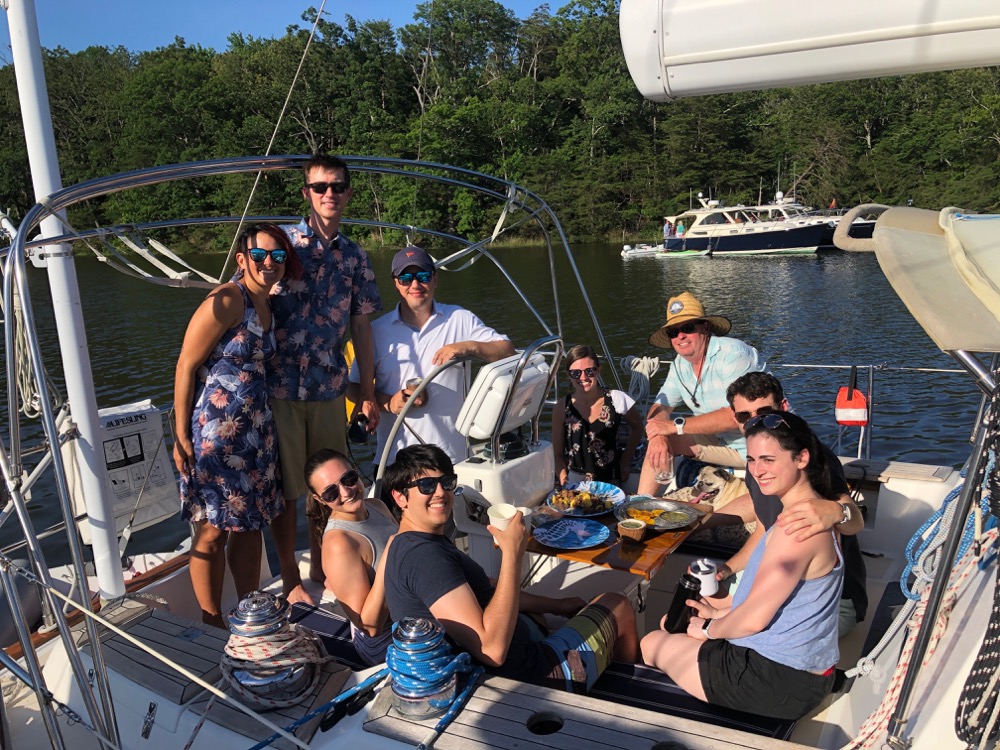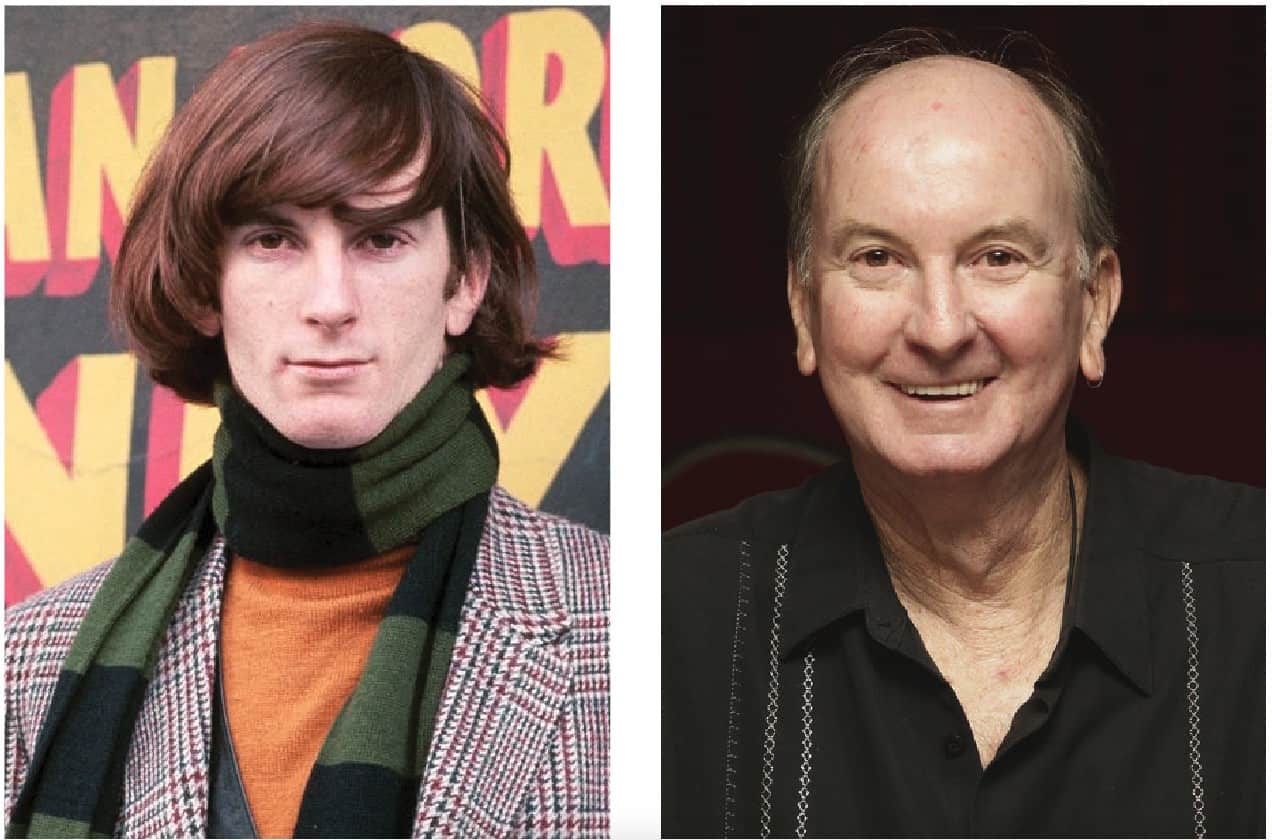Sherman Holmes keeps the sweet sounds going.
Sherman Holmes Jr. and his younger brother, Wendell, grew up at Christchurch in Middlesex County, Virginia, attended the all-black St. Clare Walker High School in the late ‘50s and ‘60s, and were stars in the Wolverine school bands. They went on to become a groundbreaking national and international musical group featuring a blend of blues, soul, gospel, country and rhythm and blues.
In 1979, after decades of singing and playing across the country, the brothers joined with Popsy Dixon to become the Holmes Brothers band. They signed record contracts in 1989 with Rounder Records and in 2001 with Alligator Records. The Chicago Tribune called their Alligator album Speaking in Tongues a “joyous, foot-stomping carnival . . . a gift to the world of music.”
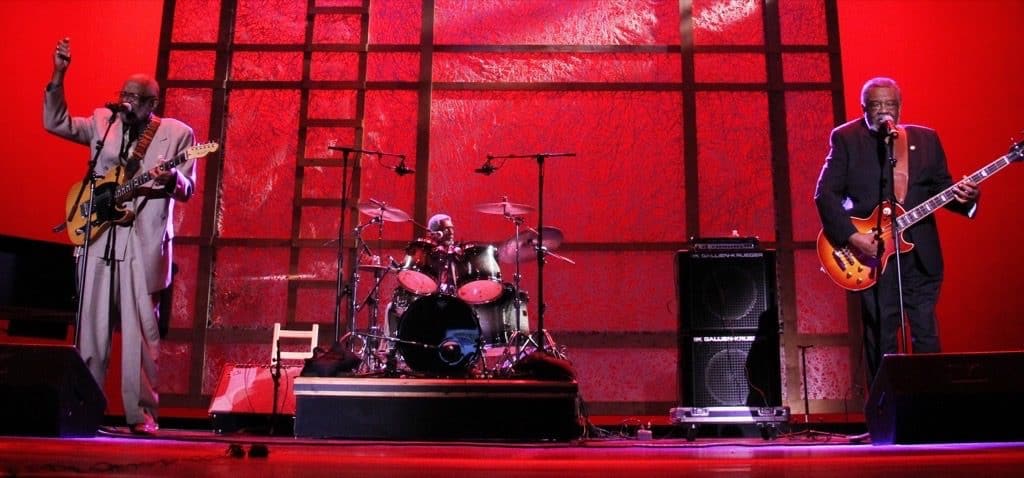
Michael G. Stewart
They performed in 58 countries, sang for President Clinton, appeared on the Late Show with David Letterman (with Joan Osbourne backing up), and numerous other shows. They won the 2005 W.C. Handy Band of the Year award, and the Soul Blues Album of the Year award in 2008. In 2014, they received the National Heritage Award, which honors those who preserve America’s historical character, and they also won an Achievement in Living Traditions and Arts award from the Maryland State Arts Council.
Sherman and Wendell are the sons of school teachers, Easter and Sherman Holmes Sr. The boys grew up singing in the Calvary Baptist Church choir and started their musical life by taking piano and organ lessons. Wendell got his first paying job at the age of 11, earning six dollars a Sunday playing organ for the Grafton Baptist Church in Hartfield.
When the brothers were 13 and 10 years old, they formed a neighborhood band and started playing at Herman Wake’s juke joint at Cooks Corner. Wake was Easter Holmes’ first cousin. “We didn’t sound like much, but we could make some noise, and whenever a band did not show up Herman would call us up,” said Sherman. “We used to say we’d rock ‘em on Saturday night at Herman’s and save ’em on Sunday morning at church.”
“Daddy liked it when we played at Herman’s, but mother didn’t. Throughout our careers she referred to our lifestyle as the ‘sporting life’ and did not accept it until we performed in front of President Bill Clinton. Then she thought it was all right,” said Sherman.
When the boys became part of the St. Clare Walker band, Sherman took up the clarinet and excelled. He graduated from St. Clare Walker in 1957 and entered Virginia State University. Wendell continued in high school playing the trumpet and guitar and played with a band that regularly performed at The Tides Inn in Irvington. “They played for tips and, many a night, Wendell came home with fifty dollars in his pocket, and that was good money then,” said Sherman.
Sherman studied composition and music theory at Virginia State and played the clarinet in the college band. Lloyd Price, who had the million-selling hit Personality, came to the school and talked Sherman into a summer musical stint in New Orleans. “He was driving a brand-new Lincoln Continental, and it seemed like a good opportunity,” said Sherman. That summer, Sherman got to experience the New Orleans music scene but had to call home for financial help to get through the summer when Price neglected to pay him his $28.50 for a night’s work and left him in New Orleans. When the money came from his mother, Sherman caught a Greyhound bus and rode home on the back seat through the segregated South.
When he got back to Virginia State, he decided to take the second semester off. In 1959, he and another student went to New York to play in a band with singer Jimmy Jones who, in 1955, had the hit song Handy Man. Sherman had taken up the bass guitar while at Virginia State, which proved to be a real asset. “I never saw a clarinet in any of the bands in New York,” he said. “After that, I was a bass guitar player for life.
“With Jimmy Jones I was making $50 a day and that was when minimum wage was $1.10 an hour. I could work 40 hours a week at a regular job and not make $50,” he said.
Sherman went all over the country with Jones, and, after Wendell’s graduation from St. Clare Walker High School in 1961, the two of them left together that summer for New York and a lifetime of music. “We both loved the business, but Wendell really loved it because, in part, he never liked working for anyone else,” said Sherman of his late brother. “Wendell’s first job was helping a white lady around her yard. He went one time and never went back, and, as far as I know, he never worked a steady job in his life. Music was his life.”
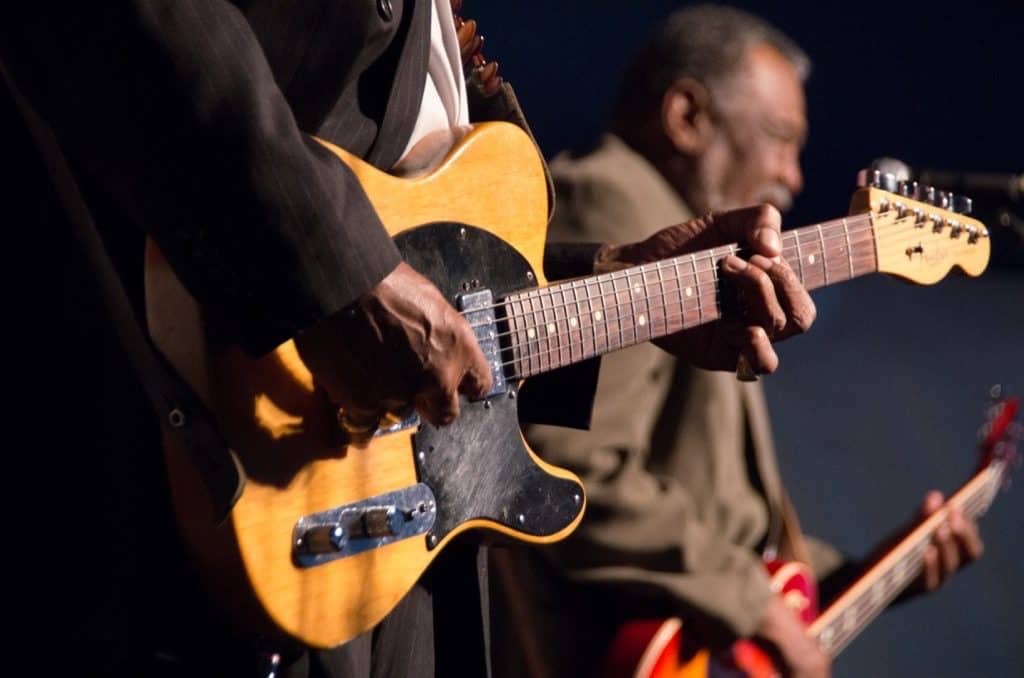
At the start of their careers, the brothers joined several bands, but in 1963, Sherman formed The Sevilles. The group lasted six years and the Holmes brothers gained lasting experience by backing up such performers as The Impressions, The Drifters, John Lee Hooker, Little Richard, Fats Domino, Jerry Lee Lewis and Jerry Butler. After the Sevilles, the brothers performed regularly with other bands on the Chitlin’ Circuit at blues clubs like the Apollo Theater in New York, Howard Theatre in Washington D. C., and juke joints up and down the South. They formed working relationships with some of the top blues/folk artists in the country. The brothers regularly played in bars and night clubs in Greenwich Village. Through the 1960s and 70s, they traveled around the country playing their music. “We tried it all. I even bought myself a white cowboy hat and was singing country music,” said Sherman. “At that time, I was the only black country-western singer around.”
From time to time, they went their separate ways with Wendell making his living exclusively with his music. During the 1970s, the disco sound took singing gigs away from blues and soul singers. “We didn’t play disco,” said Sherman.
When times were tight, Sherman found full-time work. “I eventually got a day job in Westchester, New York, making light fixtures by day and working clubs with my music at night. Wendell moved to New Jersey and was working the bars and nightclubs in that area.”
In 1967, Wendell started playing with Willie “Popsy” Dixon, a drummer and singer. Along with Sherman, they started performing with a succession of Top 40 bar bands. They worked bars into the late 1970s when the brothers and Dixon were about to give it all up. Instead they decided to leave the bands and try it as a trio. “We decided we would go trio, and when we were considering a name for our group, our agent said, ‘why don’t you use your own name . . . Holmes Brothers.’” In 1979, the Holmes Brothers hit the stage and never looked back.
“I was 50 years old when we recorded our first album,” said Sherman. “The business was hard on a family, and a lot of musicians did not look after their families. Wendell and I always found a way to provide for our families.
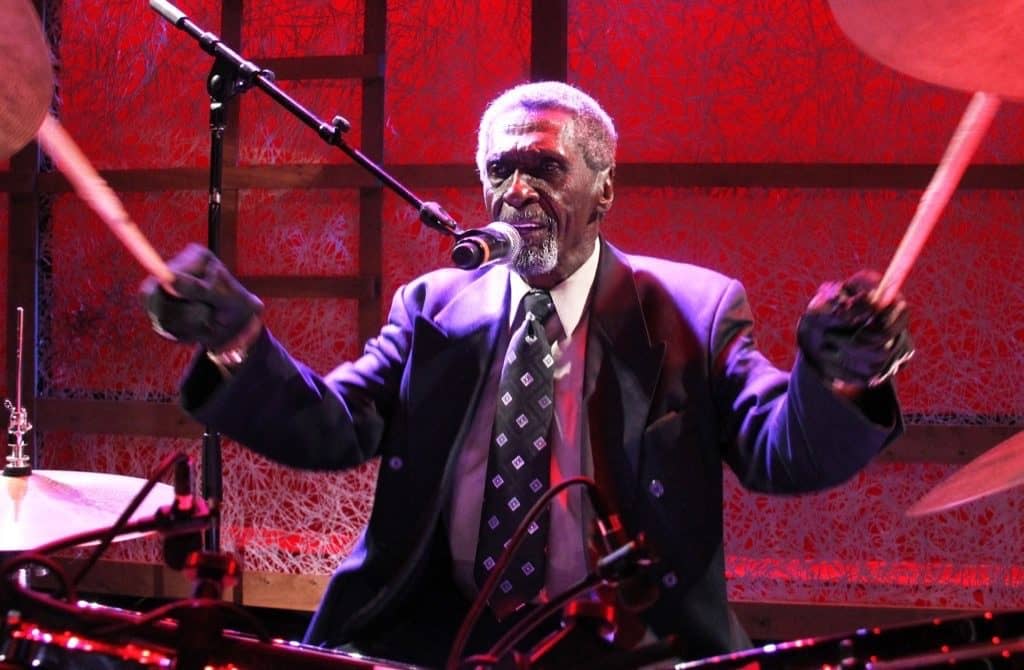
“We played all over the world. We spent six weeks in West Africa on a Goodwill Ambassador Program sponsored by President George H.W. Bush. We made music in 58 countries. When we played for President Bill Clinton and later Vice President Al Gore, we were assigned secret service people, and they even went into the bathroom with us,” said Sherman with a laugh.
“It was not always an easy life bumping around from gig to gig,” said Sherman. “But we always approached it as we were professional performers and we felt that our music was a gift. “Wendell and I saw it as what we were supposed to be doing in life. I always had an imagination, maybe because I’m left-handed and stuttered when I was young. I found some aspects of day-to-day life to be difficult, but when I started playing my music— and that is to this day—everything seemed normal. I never saw any reason to stop.”
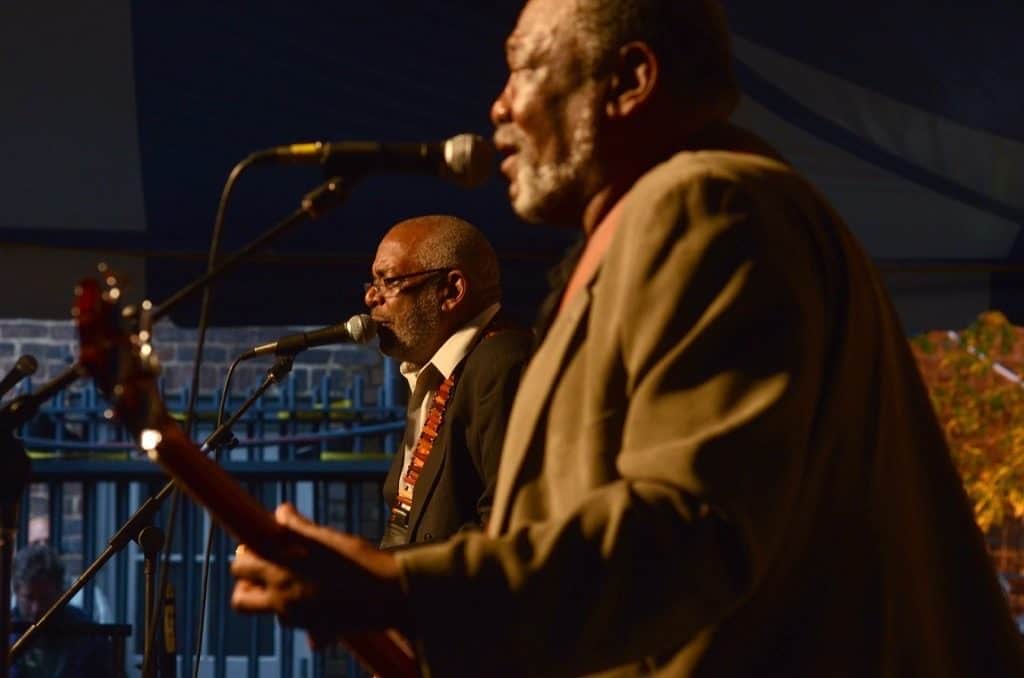
“We played every kind of music, and because of that, there were people in the business who referred to us as music prostitutes,” he said. “We just loved all kinds of music and the greatest thing about music is how it pulls people together.
“You can say what you want about hippies and rock & roll, but that was the era and sound that changed our lives forever,” he said. “That’s when we saw whites and blacks coming together for the first time to listen to the same sounds, and no longer were our gigs for all black audiences.”
The three people and sounds that have made the most impact on Sherman are an interesting mix. When asked who they were he said without hesitation, John Mingo Banks, Little Willie John and composer Samuel Barber.
Banks was a tenor singing in the Calvary Baptist Church choir when Sherman was a child. Between 1890 and 1900, Banks formed a quartet and traveled extensively in the North performing, and he achieved the distinction of traveling to England to perform for Queen Victoria. “He had a voice from God, and I listened to it every Sunday,” said Sherman.
Little Willie John was an American rock and roll singer who had hits Fever (1956); Need Your Love So Bad (1956); and All Around the World (1955). “I never met him, but that cat could sing,” said Sherman.
Samuel Barber composed Adagio for Strings (1936), the composition Sherman says he wants to be played at his funeral. “It is a masterpiece and has been my favorite piece of music for most of my life.”
His favorite gig was when the group played in Los Angeles at Willie Nelson’s birthday party. “We were playing in Europe when we got the call that Willie wanted us to play at his birthday,” said Sherman. “Willie flew us first class from Europe to Los Angeles to make his party. We had recorded one of his songs and he liked what we did so he invited us.” There were numerous groups and singers at the event. “Bob Dylan, Jerry Lee Lewis and Keith Richards were there,” said Sherman. “Each group or performer had their own limousine to ride in. It was first class. Man did we have a good time, but we had to pick up the plane tickets home, so don’t you know we rode home regular class,” said Sherman with a laugh.
Wendell and Popsey died in 2015. “Popsy wasn’t my real brother, but he was my brother,” said Sherman, becoming quiet with emotion. “Lord, I miss those two.”
Sherman lives in Christchurch, across the street from Calvary Baptist Church where his joy of music started. He continues the group’s legacy performing around the country as the Sherman Holmes Project. He often plays and sings Amazing Grace as a tribute to the Wendell and Popsy and his own spiritual and music heritage.
Under the direction of Jon Lohman, Virginia State Folklorist and Director of the Virginia Folklife Program, Sherman and the group The Legendary Ingramettes performed a 10-day good-will tour in May in Serbia and Bulgaria.
“I will never stop performing,” said Sherman. “It’s the greatest profession in the world. It is the only profession where people applaud when you come on stage and applaud when you go off. You can’t beat that!”

